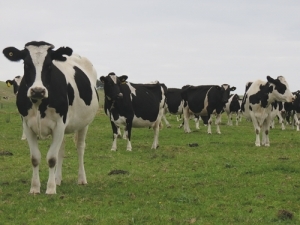TB plan review to focus on possum hot spots
New Zealand is closer to eradicating bovine TB than ever before, but possums remain a threat, says Beef + Lamb New Zealand.
 Since 2011, OSPRI's TBfree programme has eradicated TB from 1.2 million hectares and infected herds are down to 35 – a huge decrease from nearly 1700 in 1994.
Since 2011, OSPRI's TBfree programme has eradicated TB from 1.2 million hectares and infected herds are down to 35 – a huge decrease from nearly 1700 in 1994.
The farming industry's investment in TB eradication is proving to be effective as OSPRI lifts stock movement restrictions and reduces testing requirements in many areas.
The reductions to disease control areas affects 5.3 million hectares and nearly 10,000 herds, resulting in 500,000 fewer TB tests. The changes are effective from tomorrow (March 1).
Farmers in regions where movement control areas have been removed will benefit from the freedom to move stock without any pre-movement tests, or from significantly less TB tests as special testing area requirements are reduced.
Tasman dairy farmer Phil Riley used to pre-movement TB testing for 22 years, but will be glad to see the back of it. "A lot of us had got used to it, and it's just another job that you have to do on the farm. But it's great to see the back of it, because it makes it that bit more difficult if you happen to be selling your farm or stock."
Since 2011, OSPRI's TBfree programme has eradicated TB from 1.2 million hectares and infected herds are down to 35 – a huge decrease from nearly 1700 in 1994.
Riley says, "We've only got to look at the progress OSPRI's TBfree programme has made to see that as we get better at establishing where the risk is, movement control areas will get smaller and smaller."
OSPRI chief executive Michelle Edge explains that as OSPRI's work proves successful in each area, disease control areas are reviewed based on detailed scientific analysis and data modelling. Accordingly, where TB eradication targets have been met the testing requirements are reduced.
"The progress of OSPRI's TBfree programme is a credit to farmers and the industry and Government organisations that are shareholders and investors in the TBfree programme and is another step towards New Zealand becoming TB-free."
The plan for how OSPRI manages TB is likely to change from July 1, 2016 after a recent review of the National Pest Management Plan. A proposal in response to the review was developed by an independent group comprising key investors and stakeholders of both industry and Government. This process included scientific modelling, a review of operational outcomes and a full public consultation process. The review established that eradication of TB is achievable. The proposal is currently with the Minister for Primary Industries for approval.
OSPRI's TBfree programme currently divides the country into a number of disease control areas, each with different TB testing requirements depending on the risk of TB being transferred from infected wildlife (mainly possums) to cattle and deer. Intense TB testing, movement control and both ground and aerial pest control are used to stop the spread of TB and continue its eradication nationwide.
The Meat Industry Association of New Zealand (MIA) today announced that Chief Executive Officer Sirma Karapeeva has resigned from the role.
The winners of the 2026 Hawke’s Bay/Wairarapa Dairy Industry Awards were announced at the annual awards dinner held at Copthorne Solway Park in Masterton on Thursday evening.
Environment Southland is welcoming this week’s decision by the Environmental Protection Authority (EPA) to approve the release of Blaptea elguetai, a leaf‑feeding beetle that will help control the highly invasive Chilean flame creeper.
This March, the potato industry is proudly celebrating International Women’s Day on 8 March alongside the International Year of the Woman Farmer, recognising the vital role women play across every part of the sector — from paddocks and packhouses to research, leadership, and innovation.
Fruit trader Seeka posted a record profit and returns to shareholders in 2025.
Recent weather events in the Bay of Plenty, Gisborne/Tairawhiti, and Canterbury have been declared a medium-scale adverse event.
OPINION: Staying with politics, with less than nine months to go before the general elections, there’s confusion in the Labour…
OPINION: Winston Peters' tirade against the free trade deal stitched with India may not be all political posturing by the…